By Amy Roeder | Winter 2021
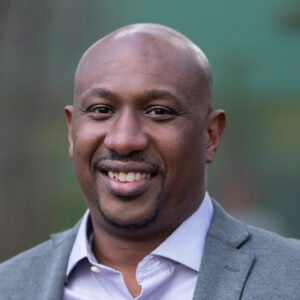
Ra’Shaun Nalls wants to see students pushed out of their comfort zones. As director of community engagement at the Harvard T.H. Chan School of Public Health, Nalls is accustomed to helping guide students through ambitious projects that challenge them at every turn. But one program—the Rose Service Learning Fellowship—is embracing a new approach to fieldwork at the School that compels students to reassess their role in public health and think deeply about what it means to work within a community.
“As public health practitioners and researchers, we don’t have all the answers, and that’s quite okay,” says Ra’Shaun Nalls, director of community engagement. “Students need to consider how their work fits into people’s lives, not how people’s lives should fit into their work.”
That philosophy is at the core of the fellowship, which was established in 2018 thanks to a gift from Deborah Rose, SM ’75. Years earlier, Rose, a chronic-disease epidemiologist, gave a gift to create the Rose Traveling Fellowship, a program that has given dozens of students in epidemiology and biostatistics the opportunity to sharpen their skills in real-world settings from Bangladesh to Tanzania.
Rose wanted to do more, though, and she was particularly interested in fostering a program that combines instruction and reflection with immersive cross-cultural exposure and hands-on work, while emphasizing the importance—and challenges—of acting in service to others.
To qualify for a Rose Service Learning Fellowship, students must demonstrate that their projects meet a community-identified need, and that they will tap into the expertise of local partners. Any student or postdoctoral fellow is eligible after they’ve completed a semester of coursework. With funding comes a requirement to participate in a series of reflective and co-learning activities over the course of the semester-long fellowship. The aim is to help fellows see their work as a collaborative endeavor and understand their unique perspectives as researchers. Importantly, this introspective approach often reveals students’ blind spots about working with unfamiliar communities.
“At orientation, I start off with stating that the fellowship is more than the stipend. Students take on the role of being a learner in the field,” says program leader Jocelyn Chu, SD ’02, an instructor in the Office of Educational Programs. “It is a paradigm shift for many students, who may see the field practice experience as a chance to hone their technical skills and expertise.” Through the program’s educational framework, students learn to pay attention to the contexts and social systems in the communities in which they work.
“Fellows have to be willing to suspend their judgment, to challenge their values and assumptions about people and cultures,” Nalls says, “and to be willing to recognize that knowledge is produced in many different ways and possessed by many different people.”
While student field practicums—in community nonprofits, pharmaceutical company research labs, government offices, and everywhere else that a public health professional might work—are not new at the School, the emphasis on self-reflection and peer learning undertaken by service-learning fellows is unique.
Guiding the program is the idea that it’s not acceptable for academic experts to simply parachute into communities with plans to fix their problems. Outsiders must instead focus on needs identified by community members themselves and partner with those on the ground who are already doing this work.
COVID-19 has made the urgent need for these collaborations clear, says Nancy Turnbull, senior associate dean for educational programs. The challenges spurred by the pandemic are both immediate and long term, including increased food insecurity, deferred preventive care, and widespread mental health issues—particularly in Black and brown populations already impacted by health inequities.
To prepare to tackle these and many other problems, students need to get outside the classroom and apply what they’ve learned, Turnbull says. “It’s my dream that every student in the School has some type of community-engaged learning experience like a Rose fellowship.”
From Massachusetts to Mongolia
While the Rose Service Learning Fellowship program is only a few years old, its impact can already be seen around the world. Fellows have analyzed how polluted air is driving up childhood asthma rates in Ulaanbaatar, Mongolia, and collaborated with local officials on the South Pacific islands of Kiribati to understand how depleted and polluted fisheries affect the diets and health of nearby communities.
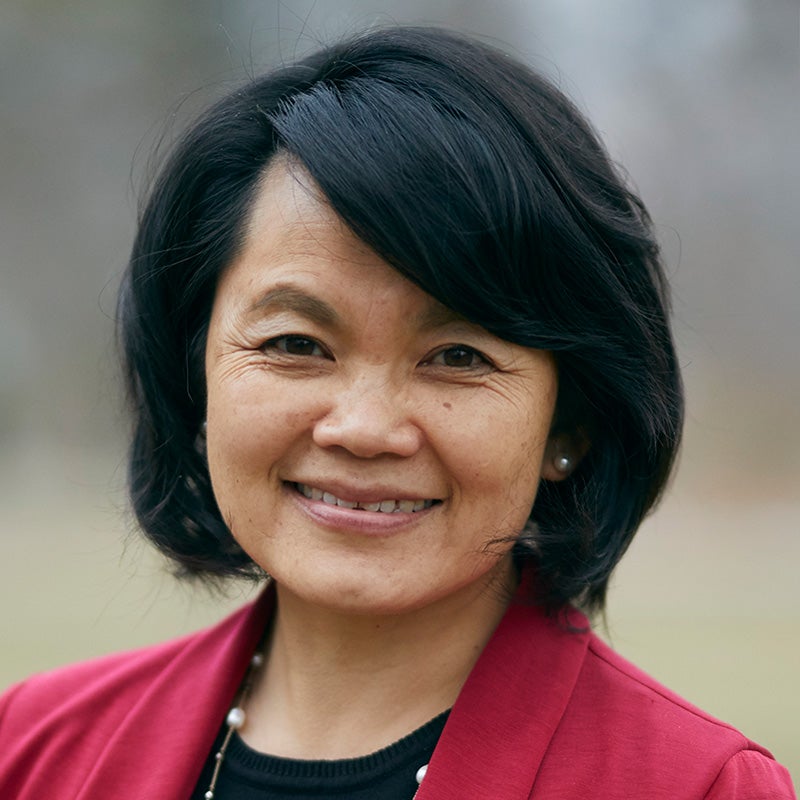
Other fellows have stayed closer to home, including Alicia Nelson, MPH ’20, who spent a summer studying air-quality issues in her family’s hometown of North Pole, Alaska, near Fairbanks—one of the most polluted cities in the nation. Many people in the area heat their homes and businesses with woodstoves, but officials have introduced restrictions on burning wood to meet the standards of the federal Clean Air Act. It is an important policy, but one that has been challenging for a community trying to balance heating costs, personal freedoms, and a healthy environment.
The challenges of service learning mirror the challenges of practicing public health in the real world, says Jocelyn Chu, SD ’02, an instructor in the Office of Educational Programs. “Things are not always going to go according to plan. Part of the process of reflecting is becoming open to twists and turns.”
To better understand the impact of the policy and the barriers to effective implementation, Nelson worked with the Fairbanks North Star Borough’s Division of Air Quality, where she focused on developing strategies to communicate information about air-quality regulations and alternative heating methods to residents, placing a premium on empathy for those who struggled to make a change. Some days, the work meant poring over data and analyzing policy at a granular level. Other days, it meant going fly-fishing with community members to carve out time to talk and listen to their concerns. The work helped prepare her for her current role leading vaccine-education efforts for the Alaska COVID-19 Vaccine Task Force.
As an exercise in embracing a mindful approach to their efforts, fellows are asked to reflect on their own lives and their educational and professional experiences. Before they head out into the field, students write a “positionality statement” that explores their own identities within the context of their work—for example, as a middle-class white woman with no children working with low-income African American mothers. The students rewrite these statements at the midpoint and end of their projects and share them and additional writing assignments with other fellows on an online message board.
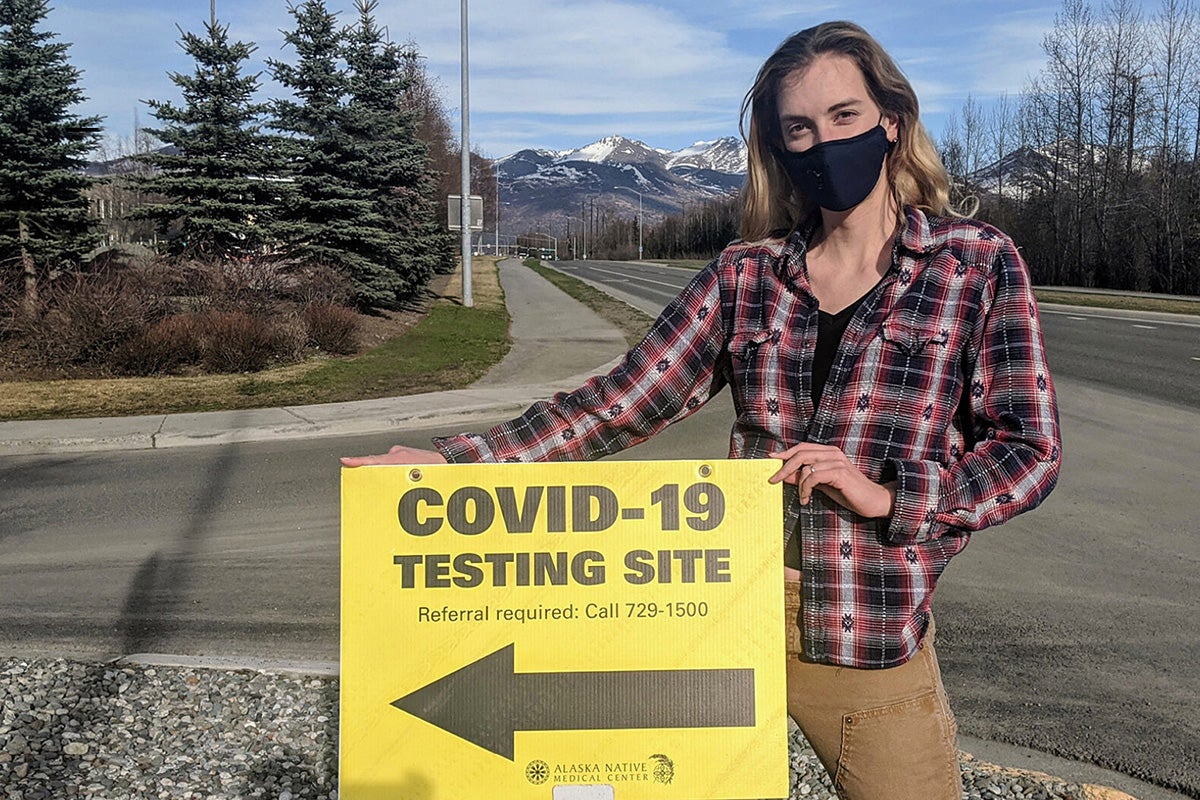
There’s no grade attached to this work. Success is measured by a student’s growth as a public health professional and their development of the skills required for community-engaged work, such as relationship building, communication, and adaptability.
“These skills are really needed in public health,” says Stacey King, director of practice and a mentor to the Rose Service Learning Fellows. “Employers are asking for students who know how to engage with community partners.”
The challenges of the program mirror the challenges of practicing public health in the real world, says Chu. “Things are not always going to go according to plan. Part of the process of reflecting is becoming open to twists and turns,” she adds.
Allowing room for disruption
The COVID-19 pandemic has posed logistical and existential challenges for a program that thrives on immersive cross-cultural experiences. But organizers are using it as a teachable moment, emphasizing that disrupted plans can lead to new questions and unanticipated opportunities for learning.
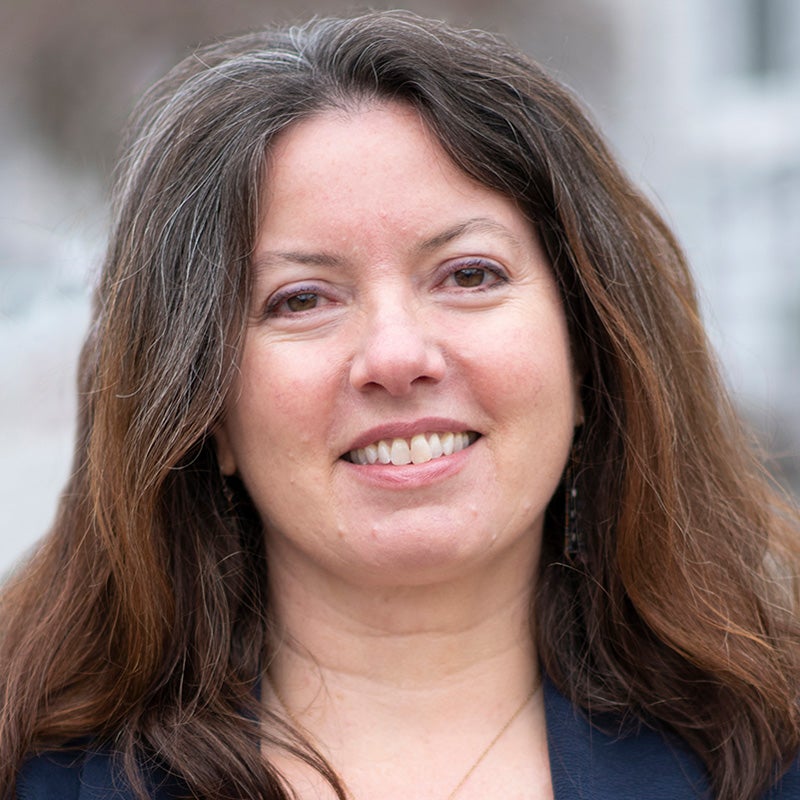
Going virtual also pushed students to think creatively about their goals. Madison Esposito, MPH ’21, a citizen of the Tyme Maidu Tribal Nation in California, had hoped to conduct field research in New Mexico this summer, continuing a project on suicide prevention in Indigenous youth that she’d started during WinterSession. When that option fell through, she decided to work with her cousin Taylor Pennewell, a teacher, to develop educational curricula highlighting California Native voices. Esposito received support and input from her tribal council and others in her community, and she and her cousin have launched the nonprofit Redbud Resource Group to continue the work.
With service learning, the key to success is an authentic exchange of ideas and “a willingness to have your mind and heart changed by someone,” Stacey King, director of practice, says—and to lean into struggles when they happen. “To me, this is the real work,” King says, “and it is where the transformation and excitement happens.”
Jasmine Akuffo, MPH ’21, set out to forge connections during her summer practicum, despite the limitations of remote communication. She partnered with the Public Health Institute of Western Massachusetts on a health-impact assessment of the barriers to accessing affordable housing faced by older Black men with a criminal offender record. Akuffo co-led the screening and scoping steps—key parts of the project-planning process. She also designed a survey and interview guides for the project’s data-collection phase that were refined through collaboration with directly impacted community members. Akuffo says that the project further fueled her interest in research that is both actionable and community engaged.
But even when they are able to do the work in person, some students struggle, according to King. It can be hard for driven Harvard students to be vulnerable and admit that they don’t have all the answers. “We try to get them to dig deeper, and for some students, that’s not very comfortable. But community-engaged work is personal,” King says. “It takes practice to engage as a learner instead of as an expert, and community members and field partners are the best teachers.”
Building connections in the Mississippi Delta
This summer, the School launched a new community-engaged learning experience in the Mississippi Delta. Fellows Fortunate Chifamba, MPH ’21, and Penny Sun, MPH ’21, worked with the Children’s Foundation of Mississippi to start developing a policy blueprint to improve child health and well-being outcomes and participated in co-curricular learning activities with the Rose fellows.
The new Harvard-Mississippi Delta Fellowship in Public Health is part of what organizers see as a lasting collaboration for change in a state that ranks last or near the bottom on most health measures, including maternal and child mortality, obesity, and high blood pressure, particularly in Black and brown communities. Known as the Mississippi Delta Partnership in Public Health, it also includes research training and service-learning opportunities for undergraduates, with a particular focus on students from local historically Black colleges and universities (HBCUs), and collaborative research opportunities for scientists from Harvard and the region.
To aid in this effort, the School is working with the Delta Directions Consortium, an interdisciplinary group of academic institutions, community-based organizations, and foundations focused on improving health, food systems, and economic development. The partnership is led by Bizu Gelaye, assistant professor in the Department of Epidemiology.
The Delta fellowship is supported by the Winokur Family Foundation as an extension of earlier support of a fellowship at Harvard Law School that led to the development of Delta Directions. That program sends recent graduates to work with Delta Directions partners on legal and policy matters. The new Harvard Chan School fellowship is open to all current students who have completed at least a semester of coursework.
Building on the success of Chifamba and Sun’s work with the Children’s Foundation of Mississippi, Gelaye envisions future opportunities with other consortium partner organizations when COVID-19 restrictions pass and students are able to work in person.
The program’s other training component—for undergraduates—is an important part of the School’s commitment in the region, says Gelaye. Called the Delta Scholars Program in Public Health, it is a collaboration with Mississippi State University, the University of Mississippi, and Harvard Law School. “It is through this kind of intentional investment in pipeline programs that we can make a difference in addressing underrepresentation in academia,” Gelaye says.
To develop the Delta Scholars Program, Gelaye brought in Mary Wesley, DrPH ’18, a Harvard Chan School alumna from Mississippi, as a teaching fellow. Wesley knows the challenges the region faces as well as anyone. She worked for the Mississippi State Department of Health before and after her studies at the Harvard Chan School, where her efforts included supporting and supervising maternal and child health research programs.
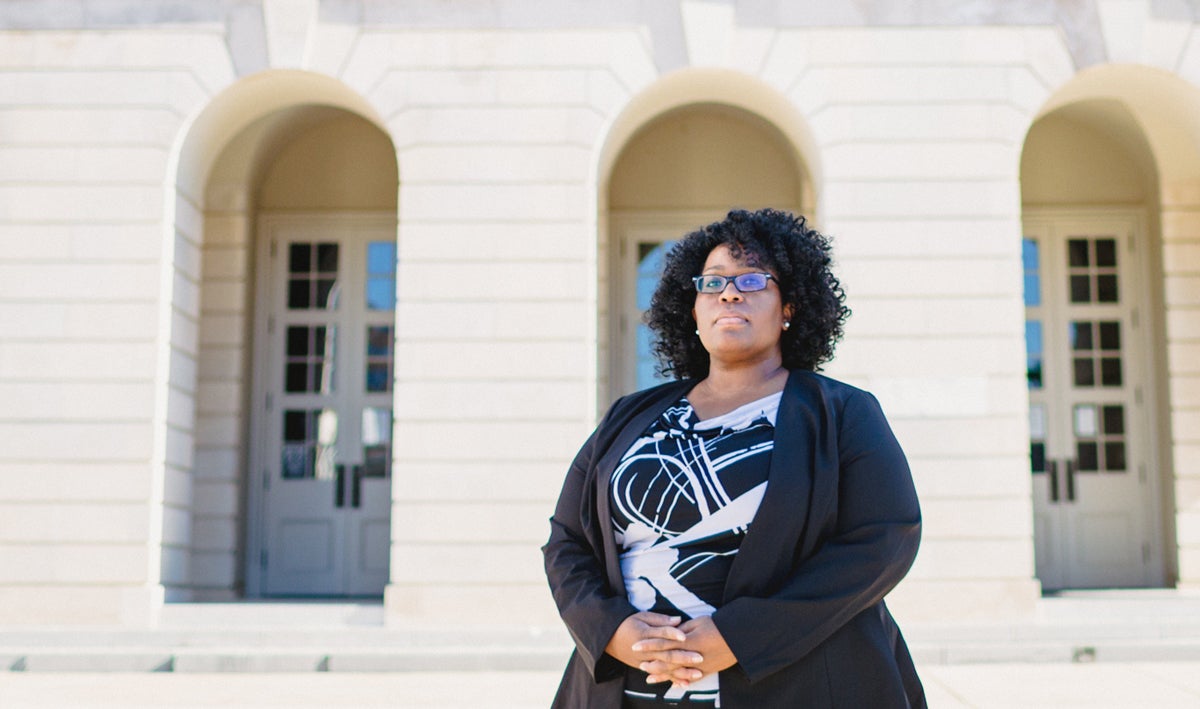
“I bring my life experiences to the table, in a way that I believe is authentic and committed to both helping Mississippi and advancing scholarship at Harvard,” Wesley says. And as a graduate of an HBCU—Prairie View A&M University in Texas—she was particularly drawn to the undergraduate training program. Last fall, Wesley mentored a Delta scholar from Jackson State University on a research project looking at the relationship between food insecurity and childhood asthma in Mississippi.
Wesley wants researchers coming into Mississippi to focus not just on the state’s low health rankings but to try to understand also the historical, economic, and social factors that undergird these poor outcomes. Individuals not from Mississippi should appreciate the resiliency of communities enduring long-standing inequities, she says. She notes that the experience of living through the COVID-19 pandemic may be unexpectedly instructive for many. “People have a better understanding of collective stress and collective trauma, and how it impacts well-being,” she says.
Envisioning the next steps for community-engaged learning at the School, Chu, King, Nalls, and others picture new courses, long-running signature projects, and even a research center focused on community-engaged scholarship.
With any of these efforts, the key to successful engagement is an authentic exchange of ideas and “a willingness to have your mind and heart changed by someone,” King says—and to lean into struggles when they happen.
“To me, this is the real work,” King says, “and it is where the transformation and excitement happens.”
Amy Roeder is associate editor of Harvard Public Health.







